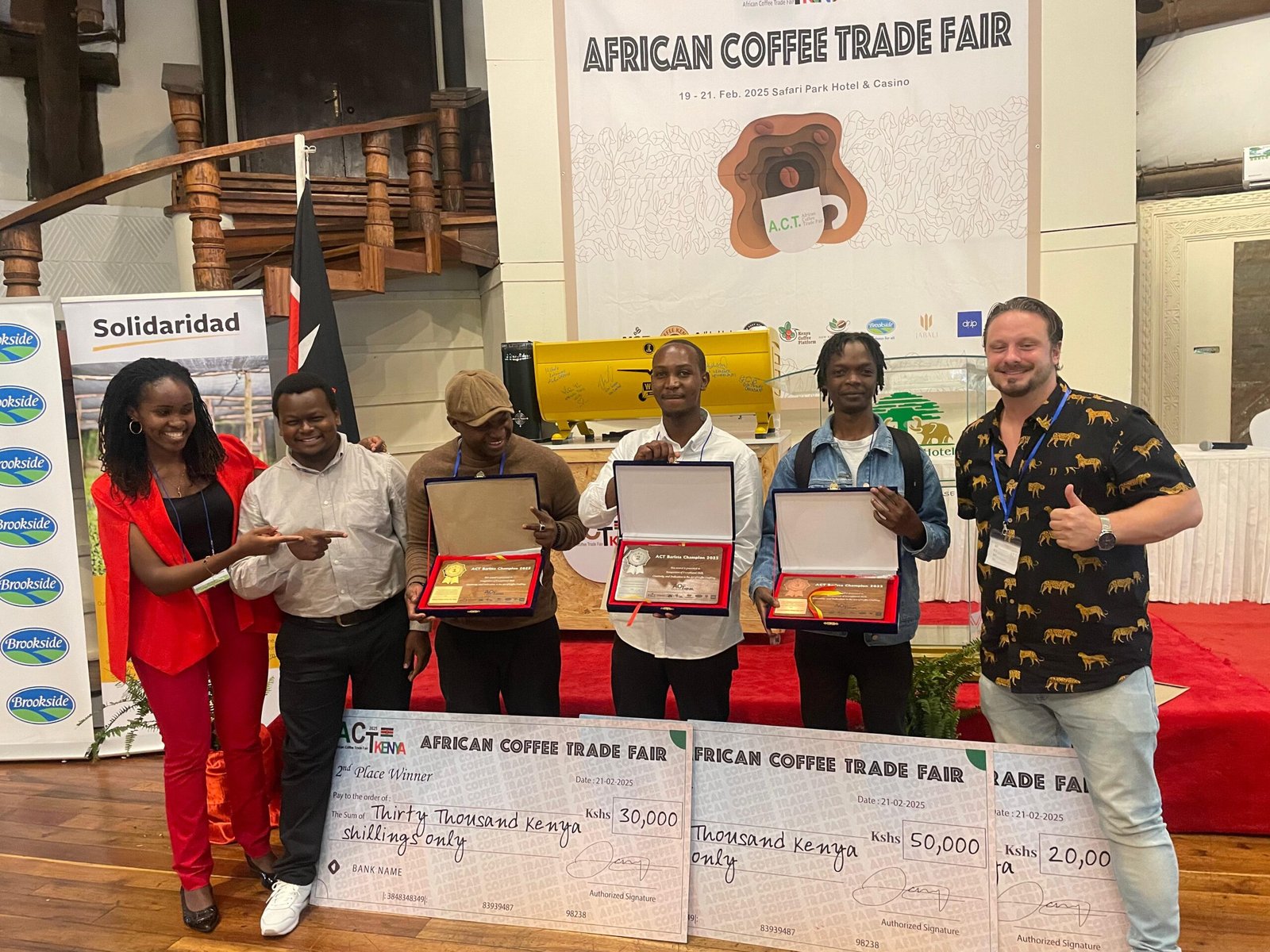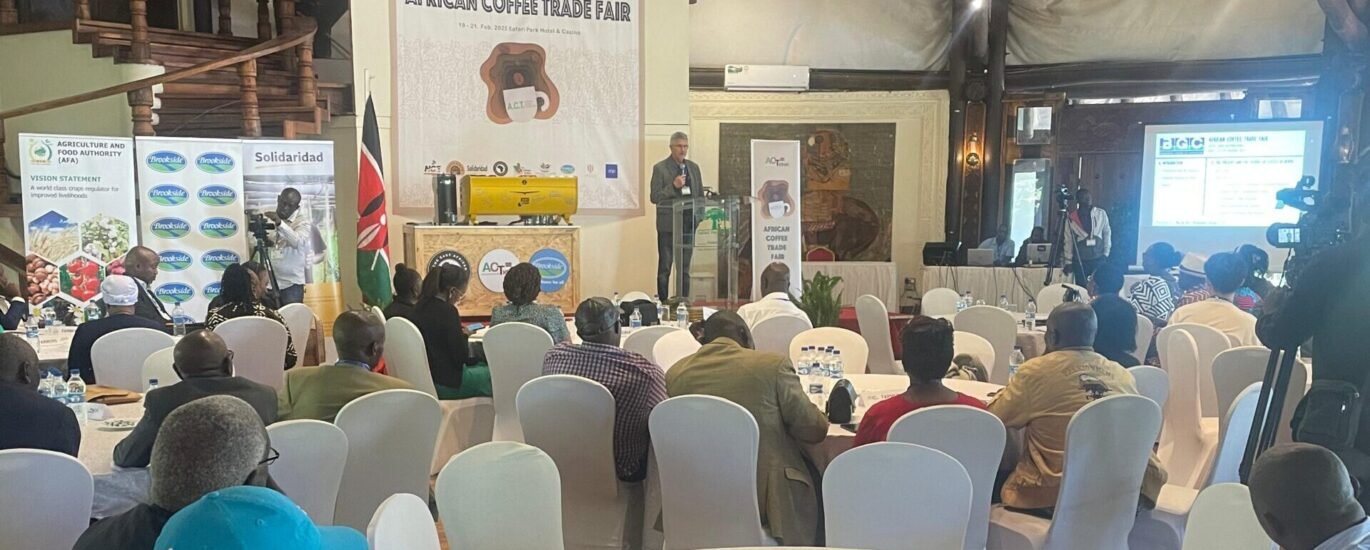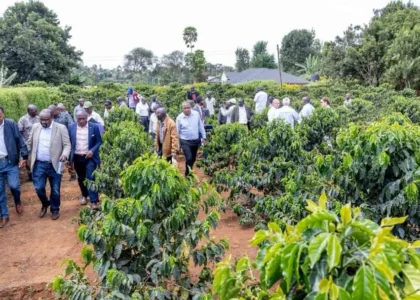At Safari Park early this year, a packed room of farmers, Asian buyers and industry leaders watched Kenyan micro-lots sell for record prices, while barista champions and tech showcases underlined a new era of quality, sustainability and direct trade
By Smart Farmer Writer
Going once… going twice… ohhh — and we have US $60 per kilo!
At Safari Park in mid-February a paddle went up, a screen blinked and the room caught its breath: buyers from Asia had bid Kenyan micro-lots to prices the country had not seen before. What followed was a day of handshakes, hugs, and a conversation about whether those headline moments could become the new normal for the people who grow our coffee.
The African Coffee Trade Fair (ACT 2025), staged in Safari Park’s conference hall on 15–16 February 2025, laid out its drama like theatre. Farmers sat clustered on one side of the room, buyers and roasters opposite them; journalists and guests circled the middle at round tables. A mic and a stage fronted banners from ACT’s organisers and sponsors, while a huge screen kept a steady countdown whenever a lot went live. Between coffee breaks and demonstrations, the auctioneer’s cadence — part sportscaster, part ritual — set the tempo.
A market that surprised
When a Natural High lot from Nyeri topped US $48/kg, and later a Yellow Honey micro-lot from Kirinyaga hit US $60/kg, murmurs of disbelief swelled into applause. Both results blew past 2024’s top price of US $40/kg and signalled something important: pockets of international demand are willing to pay for traceable, high-quality, speciality Kenyan coffees.
“We are here to honour the hands that grow coffee, the minds that innovate it, and the hearts that appreciate it,” said Jabali director Jomo Prat in his opening remarks — words that set the tone for a day that mixed celebration with business. “You are not just purchasing coffee. You are investing in these farmers, in their future, and the future of Kenyan coffee.”
Buyers made their presence felt. “This is my first time in Kenya,” said Japanese buyer Kenichi Wakiyama. “I’ve tasted lots I’d never had before. I want Japan to taste this excellence — and to know who grows it.” From Shanghai, Robin Park of Alka Coffee put it simply: “Coffee is not just a beverage. It’s a connection.” Those connections — traceability, farm story and quality — translated into real premiums on the block. On the floor, several South Korean firms were among the most aggressive bidders; their interest pushed prices into figures that had farmers on their feet.
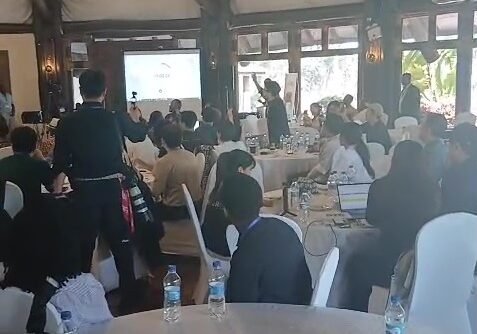
From cup to contract
The hall was more than auction theatre. Prior to the block, the Agriculture and Food Authority’s coffee directorate and cupping panels had whittled 150 samples down to 30 top lots. Each lot carried a story of altitude, microclimate and people — attributes that buyers repeatedly said they were prepared to reward.
“When our farmers know there is a market for their coffee, leave the rest,” said Karugu Macharia of the Kenya Coffee Platform during a panel that moved from celebration to sober strategy. Producers who sold that morning left with more than receipts; many moved directly into contract negotiations at the breakout tables, turning applause into paperwork.
Tech, finance and the future of quality
ACT’s auction drama was balanced by a quieter, technical debate about how to scale quality. Brazilian-Kenyan entrepreneur Marcos Brandalise demonstrated eco-friendly wet mills, drum pulpers and mechanical colour sorters, machines designed to reduce water use, separate defects and deliver consistent micro-lots.
“Innovation on the farm isn’t optional anymore — it’s essential,” Brandalise told the floor, and he outlined plans for microfinance windows intended to help smallholder’s access equipment they currently cannot afford.
Brandalise’s pitch was both technical and pragmatic: higher productivity and cleaner processing reduce losses and unlock traceable micro-lots that buyer’s prize — and pay for.
Sustainability and the ‘thankless’ work
Sustainability was a through line. Rachel from Solidaridad made a pointed plea: farmers make long-term investments — better processing, peer-to-peer learning, certification — that often go unrewarded. “Sometimes sustainability is a bit of a thankless job,” she said, urging buyers to prize and pay for those investments. At ACT several certified and traceable lots did secure premiums, suggesting that certification paired with provenance can translate into real value.
Baristas, milk and the human touch
The day also balanced commerce with craft. A latte-art showdown — six finalists pulled silky shots and poured flawless rosettas and swans. Joseph Okot took first place, with Paul Wairi and Billy Munyi finishing second and third. “Winning here proves that passion and practice can rival formal credentials,” Okot said, beaming at a trophy that recognized skill as much as theatre.
Brookside Dairy’s presence, sponsoring and showcasing barista-grade milk, felt less like a corporate pitch and more like a practical reminder: the cup is the endpoint of a long chain. “A great latte starts with quality beans—and the perfect microfoam from milk that’s consistent and farm-fresh,” said Wilson Okongo, Brookside’s communications manager. His point landed in a room full of baristas and buyers who know that milk and coffee together create what consumers love.
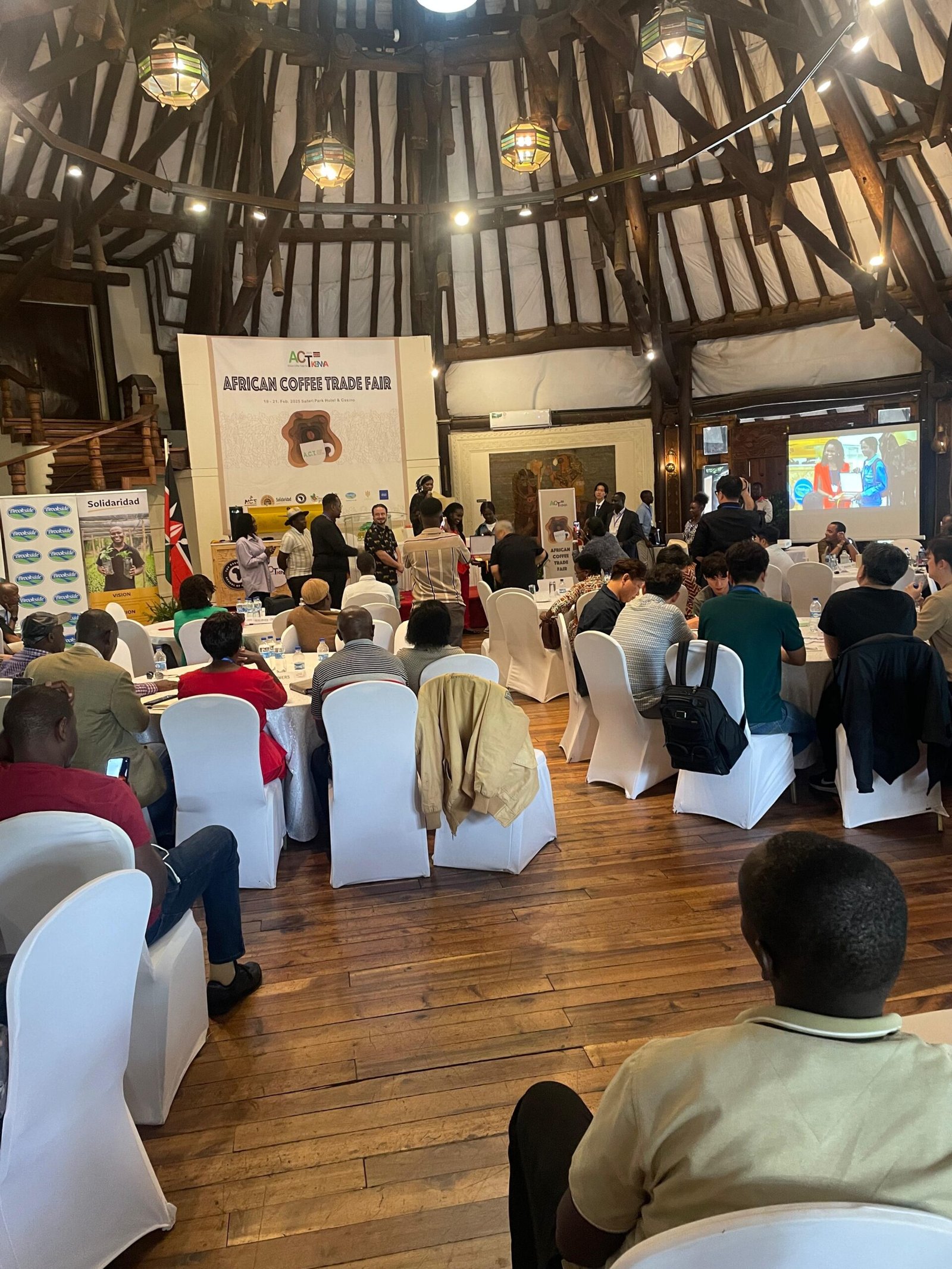
What the numbers mean
Headlines — $60/kg, $48/kg — make compelling copy. But whether those figures catalyse long-term change depends on follow-through: consistent access to markets that value high quality, financing for farm upgrades, and robust traceability systems. For many farmers, even a single premium sale can finance seedlings, training and processing improvements; for the sector, repeated premiums can change planting decisions and livelihoods.
As the auction closed and the last contracts were signed, ACT 2025 left the industry with a sharper question than it arrived with: were those record bids a rare crescendo or the opening chords of a sustained market that finally values Kenyan specialty coffee properly? For now, the farmers who raised their paddles that day have stories to tell — of cheers, of contracts, and of a price that, for a moment at Safari Park, felt like recognition enough.
